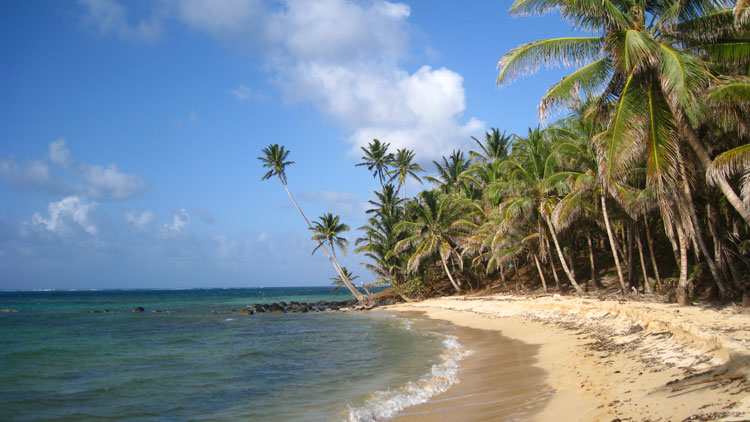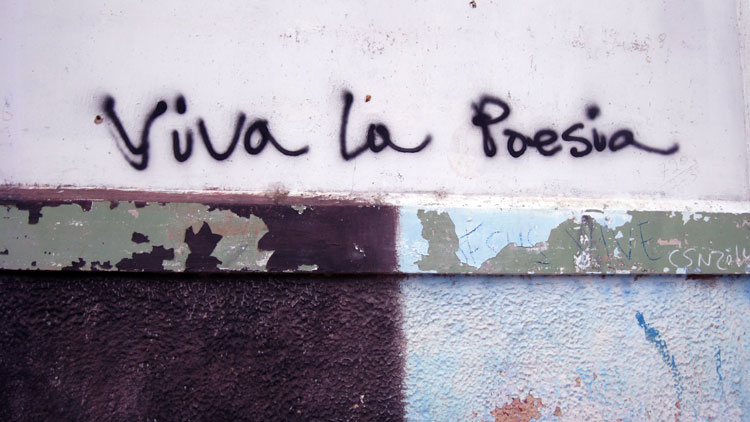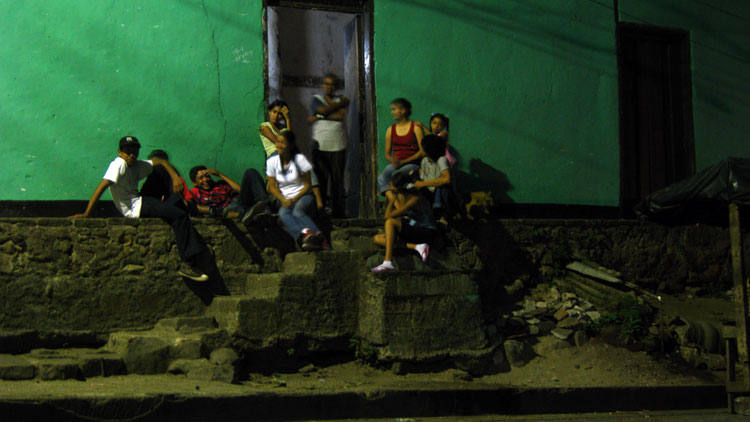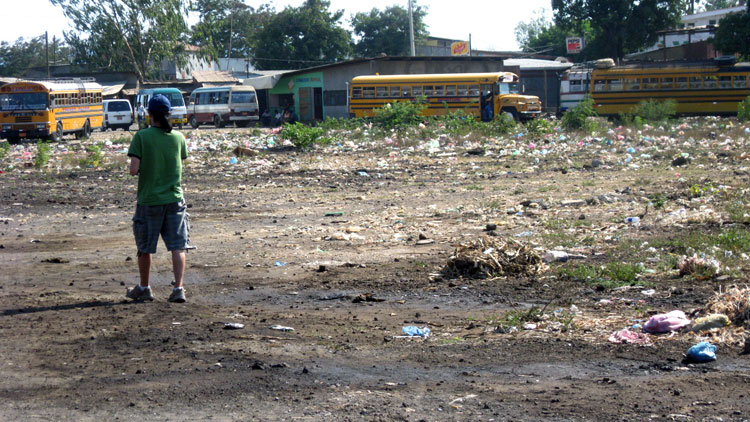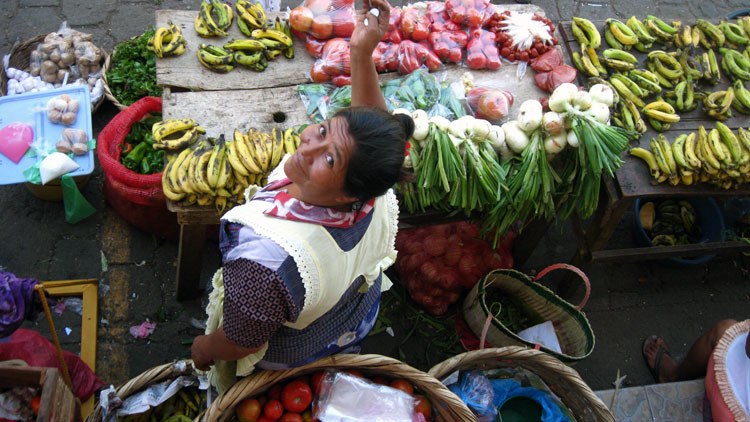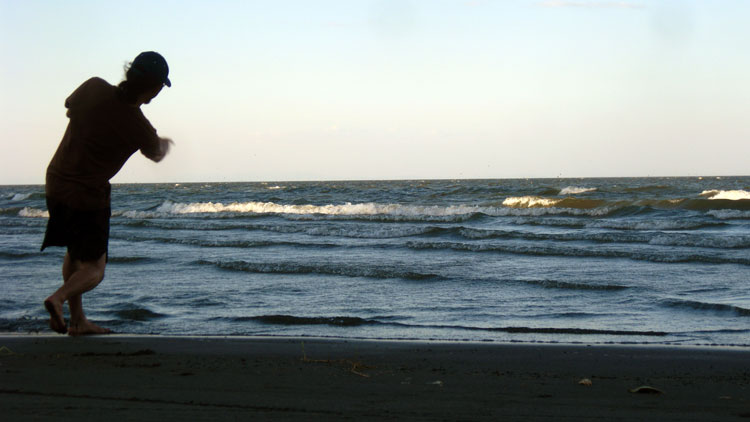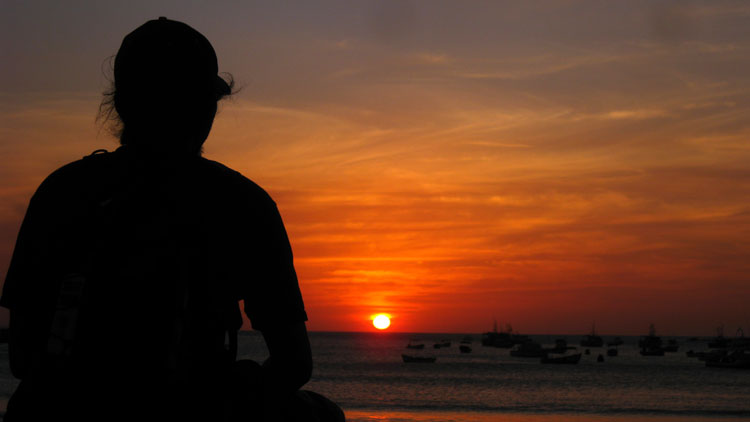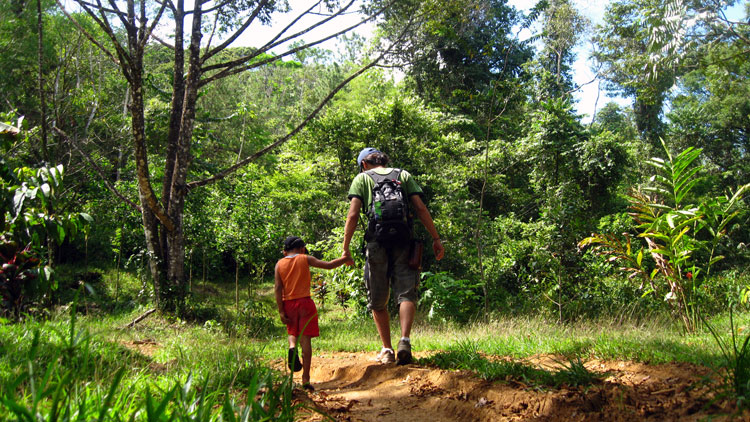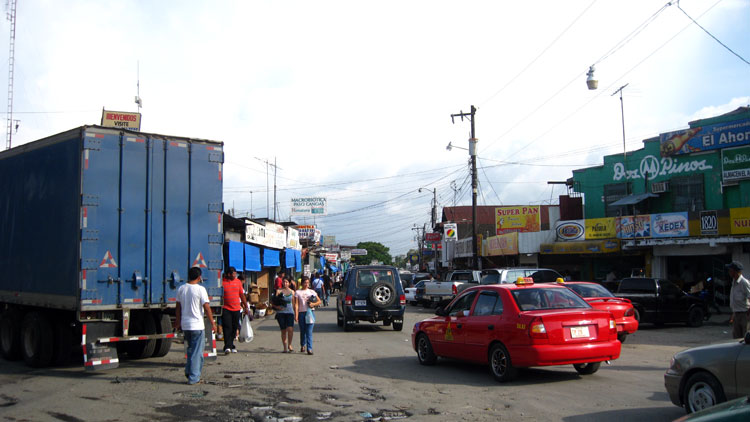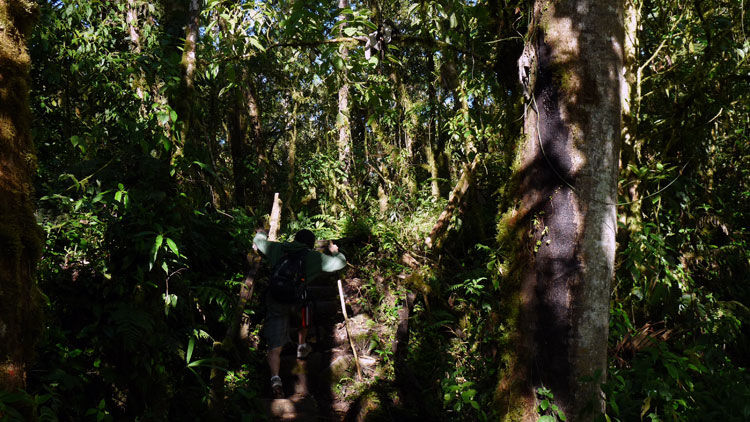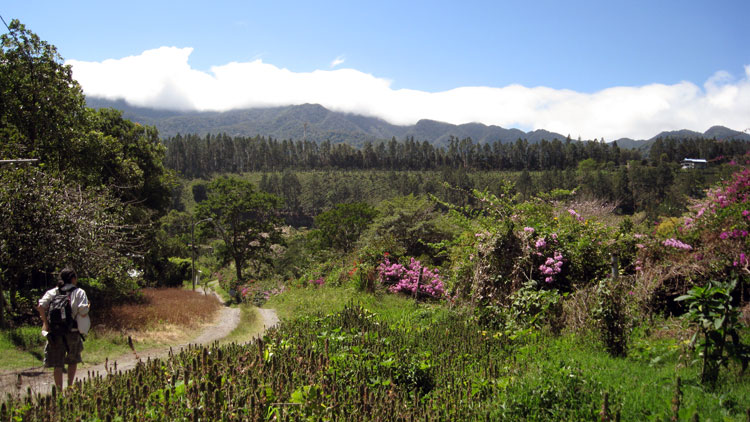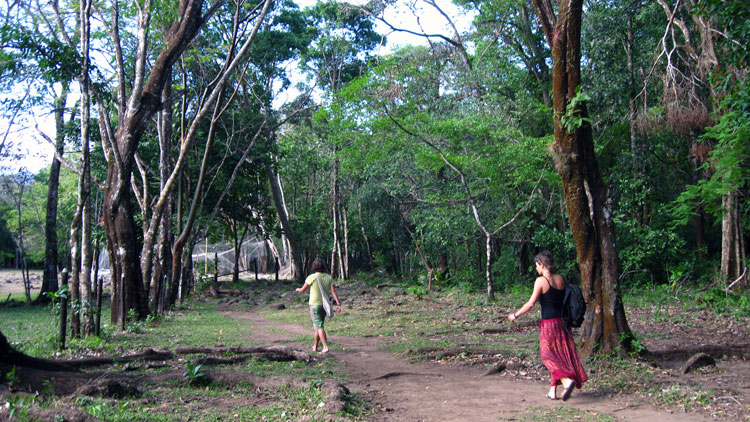To say El Salvador is a tiny country is an understatement – it´s only about 150 km wide – yet, transportation is utterly inefficient here as no bus runs any long distances. Today, I ventured into even more remote regions off the tourist trail by going into Suchitoto near lake Suchitlan. What should have been a 45 minute drive took 5 hours and 3 bus changes.
This small town nestled by the lakeside has a real rustic feel to it, with most buildings plastered with white walls and orange tile roofs. The streets roll with the terrain covered in cobblestones. The sleepy town feel is only punctuated by occasional locals walking down the streets (the men often carry a machette and women often balancing heavy baskets on the heads) or, when passing the side of a grade school, small children chanting after their teacher in unison.
This region had long been inhabited by indigenous peoples, and relics of their civilization are easily uncovered. After eating an expensive lunch ($5, more than twice the average here), we took a long stroll down the hill heading towards the lake, along the way passing all forms of farm animals and barefeet children at play running through the accumulated trash. It´s easy to enjoy the natural beauty from the commanding hillside overlooking the lake, yet life does seem hard here for the locals also, especially with the economic downturn. Everyone is just trying to eek out a livelihood here as with the rest of humanity.
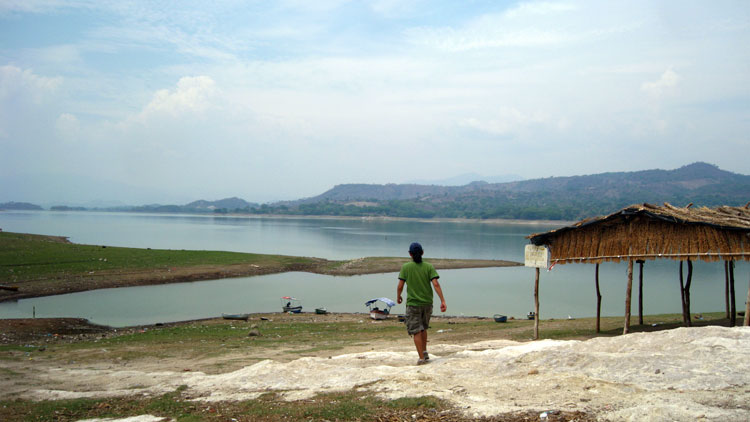
Upon reaching the lake, we met some local descendants from the indigenous peoples: kids playing by the shore, men fishing, women tending to vending stalls. One gentleman showed us relics of millstones he had uncovered. We talked him into renting us a row boat for a few hours for $4 and floated out onto the serene lake under the searing sun as the cattle roamed the shoreline and children swam by the moorlines to escape the heat.
By evening, the scorching heat turned suddenly into a raging thunderstorm lasting 4 hours. With the rainy season is just starting, the laundry I had washed and hung earlier was completely drenched. Life is slow here and adapting to the local way of life, one doesn´t mind doing things twice.


